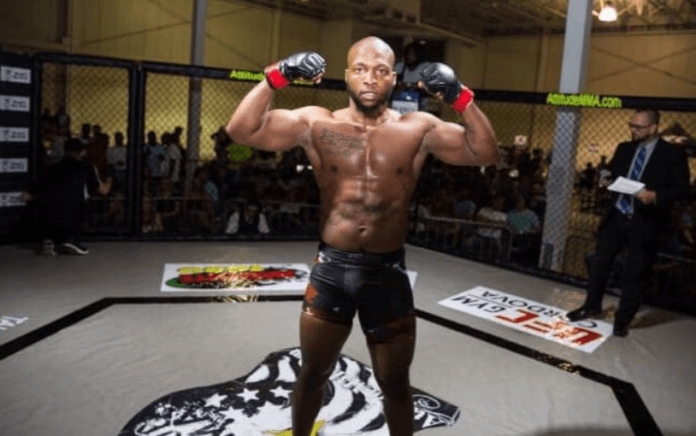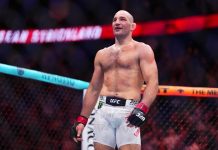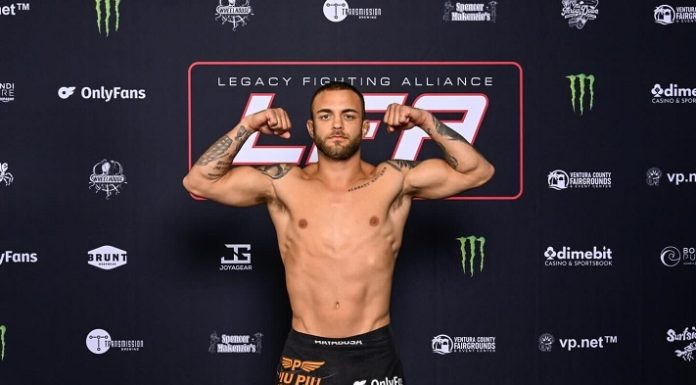
After serving ten years incarcerated in prison, Khalil Al Afriki tells Cageside Press his story, and his desire to one day be a champion.
Brought up in North Memphis, Khalil Al Afriki spent his early life in a neighborhood called Douglass. Spending most of his life there, his formative years came in a city riddled with gangs, drugs, violence, prostitution and other unseemly undertakings. A mother of seven children with Al Afriki being the oldest, his mom sought to remove the family from that dangerous environment. That led to a move to Frayser, also in North Memphis. Frayser was known as a better neighborhood, though some of the same elements that plagued Douglass persisted in Frayser.
“Eventually these outside influences made their way into our home,” Al Afriki told Cageside Press recently. “I joined a gang at the age of 12. I began to learn more about the quote—unquote ‘street life’ from other older misguided individuals.”
“I saw first hand how divesting from the community aids and abets strife in the youth.”
Going down the wrong road, Al Afriki lived a “double life” in his own words. He was practically a principal’s list student and an athlete. He fell in love with full contact sports from the beginning. First football and then boxing.
“I remember watching old Muhummad Ali fights and Joe Frazier and Sugar Ray, all those guys. I was very familiar with fighting because I fought in the street. I wanted to be Muhammad Ali. I still sleep with a picture of him above my bed. The same picture I had since I was 13. My offensive coordinator and football coach, coach Richardson practically forced me to wrestle. I was a reckless hard body on the football field. I played practically every position on the defense and I ran the ball like I wanted to hurt something.”
” I didn’t want to wrestle because ain’t no way I was doing that white man’s sport. You know, wearing tights and all that. We wasn’t with that. Keep in mind this was the early 2000’s before the skinny jean epidemic. Everything was baggy so there wasn’t a way I was getting away with tights while hugging other guys. However I still wrestled.”
Al Afriki’s only defeats came to upper-class opponents, losing only four times to his knowledge, which as he put it was four times too many. Two of those opponents wound up placed 1st and 5th in the state. With a strong showing, giving them a hard time with just his athletic ability, Al Afriki was projected to return and compete at the state level. However, the school lost its wrestling program due to a lack of funding.
“I saw first hand how divesting from the community aids and abets strife in the youth. Many of the guys in my team used wrestling as an outlet,” Al Afriki recalled. “We were brothers. We couldn’t wait to hit those mats. And it broke us when we lost that program. To this very day, I see some of those same men, who were excellent wrestlers, who could’ve wrestled in college on street corners in Frayser.”
Al Afriki’s life turned upside down in 2006, when he was sentenced to ten years of prison at the age of 18.
“I went to prison for armed bank robbery. I was implicated in many different criminal acts by informants. I was shot in the throat during this robbery and spent months in the hospital,” Al Africi said of the incident that landed him in prison. “The doctors to this day have no medical explanation on how I survived. Long story short, I went to trail and maintained my innocence. I was sentenced to 125 months.”
Doing time in the most brutal of prison environments, Al Afriki opted to hit the books and study rather than waste time sitting idle. Fitness, stocks, history, law, psychology, sociology. He built his own college dormitory so to speak. Always in love with boxing, wrestling, and MMA, Al Afriki always reminded himself that he would be a champion one day upon release.
“I shadowed boxed [in prison] and watched every fight I could,” he continued. “I came home… and contacted coach Richardson, who by the way also use to take me to box throughout middle and high school. Coach Richardson introduced me to Brian Hall, and I found a family in Law School MMA.“
Al Afriki was released in August of 2017. Spending ten years in prison, once you’re out, the toughest task is life itself, he added. Learning how to adapt can be very hard and challenging.
“It was very hard, it still is very hard adapting to the outside world,” Al Afriki admitted. “MMA has been my balance and I believe it has literally saved my life.”
“The choices you make in the cage, just like in life, determine whether you succeed or fail.”
Since his release, Al Afriki has turned his life around, and become a better person in the process. In terms of his MMA career, the middleweight and welterweight is 2-0 currently as a pro, after going 5-0 as an amateur. He’s a two-time Attitude MMA champion at 185lbs. Not to mention a Fuji Gold Medalist in the White Belt Division and Fuji Gold Medalists in No GI BJJ.
Not only is he bettering himself, but he’s also making an impact on the youth.
“I go and speak to these kids, in these urban communities. The ones looking about to do some of this foolishness, the ones who may go to sleep hungry, the ones who don’t have the nice clothes. I explain to them how choices determine your life. That god gave all of us the ability to determine our own destiny. It isn’t easy and some of the things they go through isn’t their fault, but those that do know have to combat the negativity being placed In front of them. Many of them are just looking for a way out And the media influence gives the illusion that gangs and violence is the way out.”
Now 31-years-old, Khalil Al Afriki is looking to make a real run in this sport of MMA. He has a supportive team behind him in Law School MMA with head coach Brian Hall. And a lot of motivation driving him.
“I fight because I’m a fighter. I’ve always been a fighter,” he said. “Many people are fighters in their own right. MMA is a microcosm of life. It’s a maze at times. It’s a puzzle. It hurts sometimes. You’re gonna fall. There’s gonna be adversity. How do you prepare for that adversity? How do you deal with that adversity?”
“The choices you make in the cage, just like in life, determine whether you succeed or fail,” he finished.





















